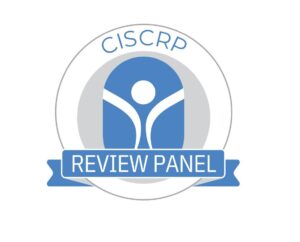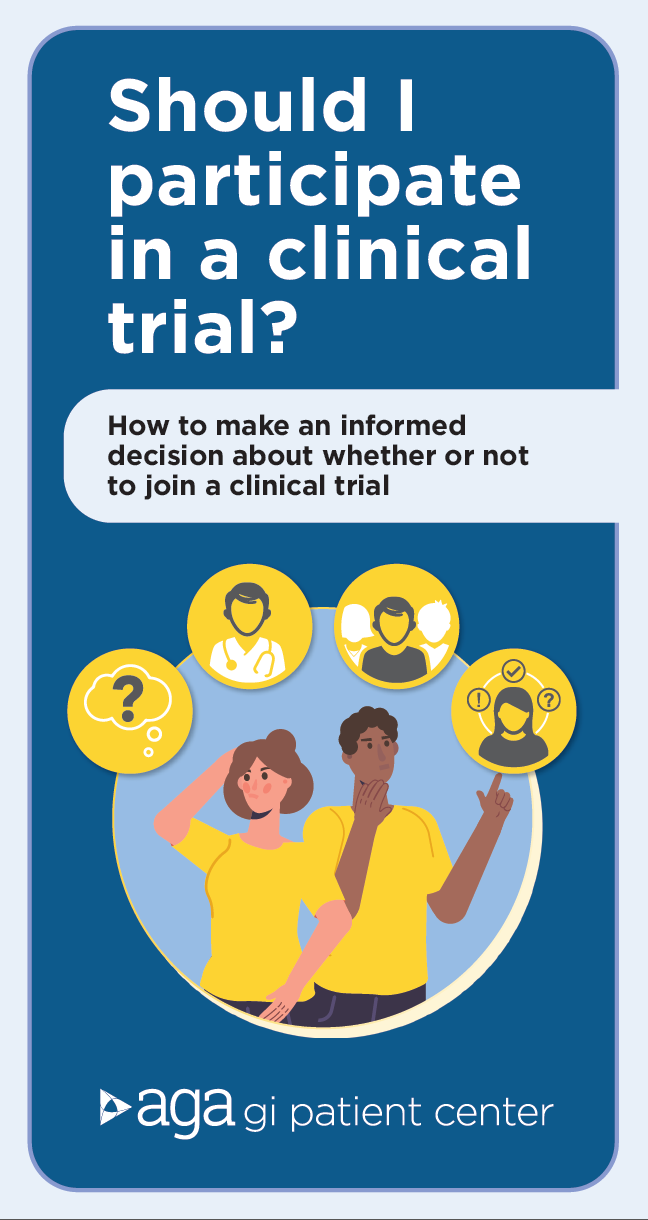What is a clinical trial?
Clinical trials are a way for researchers to find out if treatments are safe and if they work.
If you agree to participate in a clinical trial, you might receive a trial treatment or something else, such as a placebo that has no medicine in it. In some trials, you might only give permission for researchers to collect health information through surveys or medical records. Some clinical trials include “healthy” participants, who do not have the condition the trial is studying.
Trials can last weeks, months or even years. The number of visits and how long you may be in the trial overall can be different for every trial.
You may need to visit the trial site for tests and treatment, and for doctors to check on your health. These visits can also be at your home or through telemedicine.
What is an informed decision?
Making an informed decision means that you have learned as much as you can about clinical trials to make a choice that is best for you.
Participating in a clinical trial can affect your life. It is okay to take your time with this process.
Comparing the potential risks and benefits is the most important part of deciding to be in a trial.
Doing this can help you decide if being in the trial is right for you. The potential benefits and risks of every trial are different.
What to expect in a clinical trial
Before you join a clinical trial, you and the trial staff will discuss your health and decide if participating in the trial is right for you. When you begin a clinical trial, the trial staff will provide you with a schedule of your visits and what to expect at each one. Some or all the following events can occur during a visit to the study site: overall health check, receiving the trial treatment or placebo, blood testing, other procedures to look at your digestive tract.
Questions to help you get started
You can ask as many other questions as you like until you feel comfortable making a decision. It’s important to learn everything you can about a clinical trial and to follow your values, beliefs, and preferences so that you decide what is right for you.
Questions to ask yourself
Spend time thinking about why you want to participate. Gather as much information as you need to make a decision that you feel good about. There is no right or wrong choice.
- Why do I want to participate?
- Why don’t I want to participate?
- Does participating fit with my values, beliefs, and preferences?
- What would I like to get out of participating?
- What amount of risk am I willing to take?
- Do I have enough time to participate?
- Are there things that I would have to give up to participate? If so, am I willing to do that?
- Would I need to arrange for childcare or for the care of another family member if I participate?
Questions to ask a health care professional
Talking with a doctor, nurse or other health care professional about participating in a clinical trial can help you understand the risks and benefits to your health and condition.
It’s important to talk to the team doing a trial, as well as health care professionals who are not part of the trial team. They might have different perspectives to help answer your questions.
- What are the possible risks of participating?
- What are the possible benefits of participating?
- Do the possible benefits outweigh the risks?
- How would the risks and benefits of a trial treatment compare with my current treatment?
- How might participating affect my daily life?
- Would I have to pay for any part of a clinical trial? Will my insurance cover these costs?
- What are the current treatment options for my condition?
- Are there any clinical trials that would be a good option for treatment?
- Can I get the materials in a language I want? Can I get a translator?
- Will you be part of my care team if I participate in a clinical trial?
Questions to ask family, friends, and others you trust
Talk to family, friends, counselors and other people you trust. Talking to people with different views and information can also help.
- Can you attend doctor visits with me to help make sure I understand everything?
- Can you take notes for me during doctor visits?
- Can you help me organize the information I get?
- Would you be able to watch my kids, pets or house while I go to appointments?
- Would you be able to give me a ride if I need it?
- What do you think about me participating in a clinical trial?
- What do you think about clinical trials in general?
What should you do next?
Get organized. Keep your questions, answers and anything else that you learn in one place. This can help you feel more prepared to make an informed decision. You can use a notebook, computer or smartphone to keep track of what you learn.
Find out more. If you think of additional questions or other things you are not sure of, follow up with a medical professional, or research on your own to find the answers.
Make a list of pros and cons. Once you have asked all your questions and have all the information you need, you can use your list of pros and cons to help you understand how participating might affect you. This can help you make an informed decision about participating in clinical research.

A panel of patients, professionals, and members of the public reviewed this educational brochure.
Produced by

CISCRP is an independent non-profit organization dedicated to engaging the public and patients as partners in the clinical research process.
CISCRP does not recruit patients for clinical trials and does not conduct clinical research. CISCRP is also known as the Center for Information and Study on Clinical Research Participation.
sponsored by

The American Gastroenterological Association (AGA) is the trusted voice of the GI community. Founded in 1897, AGA has grown to include more than 16,000 members from around the globe who are involved in all aspects of the science, practice and advancement of gastroenterology.
This program was supported by an educational grant from AbbVie Inc.; Amgen; Bristol-Myers Squibb Company; Genentech, a member of the Roche Group; Janssen Biotech, Inc., administered by Janssen Scientific Affairs, LLC; and Takeda Pharmaceuticals U.S.A., Inc., and a quality improvement grant from Pfizer Inc.
© 2022 Center for Information and Study on Clinical Research Participation AGA
Version 1.0 2022_09_12

Natalie Manitius, MPH, RDN
DIGID Disorders of the Brain Gut Interaction Workgroup ©2021



